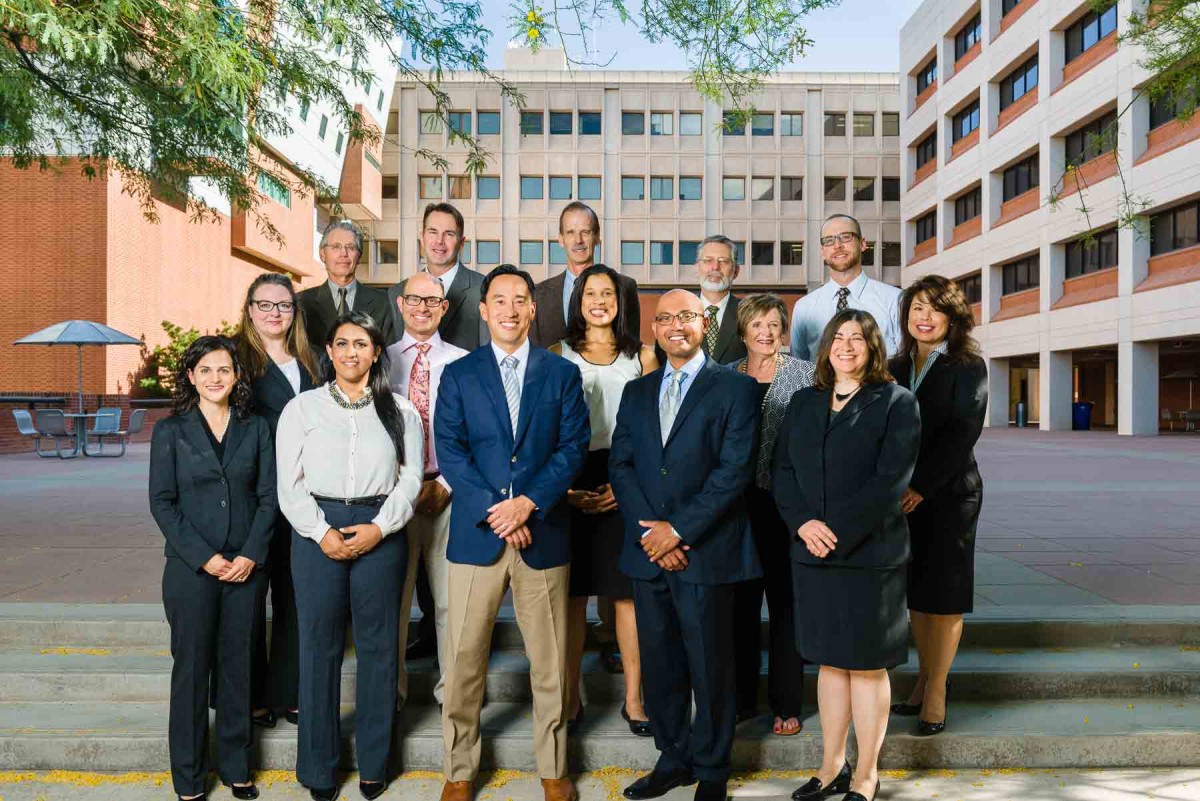The Section of Otorhinolaryngology was initially established on July 1, 1977 in the College of Medicine Department of Surgery at the University of Arizona under the direction of Dr. Stanley Coulthard. The Section was accredited by the ACGME from 1978-1988 with programs at University Medical Center (UMC), Kino Community Hospital, the Phoenix Indian Medical Center in Phoenix, and the Veterans Administration Medical Center in Tucson. Over the course of these years, 14 Residents were trained through the Otolaryngology Section. Dr. Coulthard requested voluntary withdrawal of the program from the ACGME effective June 30, 1988.
In 1991, Dr. Bruce Jarrell, Head of the Department of Surgery indicated in his Annual Report that the Section of Otolaryngology had continued to provide ENT care and coverage at UMC, including clinics in 5OPC, and an interdisciplinary clinic in the Department of Radiation Therapy at the Arizona Cancer Center. This clinic was combined with a weekly ENT/Head and Neck Tumor Conference which provided consultation for patients from the region. A continuing strength in the Section was the referral pattern and the patient load, which has continued. In 1992, Dr. Robert Cravens was added to the staff to provide a more complete coverage of UMC Clinics and surgery.
In 2000, the Section of Otolaryngology provided a comprehensive surgical program to treat sensorineural and conductive deafness under the direction of Dr. Glenn Green, an Assistant Professor in Pediatrics, Surgery, and Speech and Hearing Sciences, which included cochlear implant and bone anchored hearing implants. The Section went through a phase where it was very fragile and only had one faculty member which created problems when attempting to provide coverage for trauma and emergency care cases. A significant recruitment package was presented to the University Physicians Board of Directors, the College of Medicine Dean, and the Vice President for Arizona Health Sciences Center and was approved to address these shortcomings, leading to the recruitment of Dr. Alexander Chiu in 2010.

Dr. Chiu served as the Division Chief of Otolaryngology – Head and Neck Surgery, and as Interim Head of the Department of Surgery (2010-2014) before being named the Chair of the new Department of Otolaryngology – Head and Neck Surgery on October 1, 2014. The Department’s reputation for clinical excellence in sinonasal surgery, neurotologic disorders, and head and neck cancer surgery has helped to draw patients throughout the Southwest. Otolaryngology has been ranked in the top 30 in U.S. News and World Report’s annual “Best Hospitals” ratings, and in the top 40 in NIH funding among Otolaryngology – Head and Neck Surgery departments. ACGME accreditation was approved in 2013 to introduce a new residency program in Otolaryngology – Head and Neck Surgery. Dr. Chiu’s vision and leadership helped build the Department to 8 full-time clinical faculty, 3 research faculty, 4 residents, and 1 fellow by the time he departed Tucson in June 2016.
Dr. Steven J. Wang joined the University of Arizona on June 1, 2016 and became the new Chair of the Department. Dr. Wang brought his expertise in treatment of disorders of the Head and Neck, including tumors of the oral cavity, throat, thyroid and salivary glands. Dr. Wang continued the Department’s growth and expansion, including new clinical and research faculty recruitments in head and neck cancer and pediatric otolaryngology. The Department’s inaugural residency graduation event was held in June 2017, celebrating Dr. Erynne Faucett as the first to complete the UA otolaryngology residency program in the modern era.
Otolaryngology at the University of Arizona has a fascinating history marked by major accomplishments, but the future promises exciting opportunities for even greater achievements.

